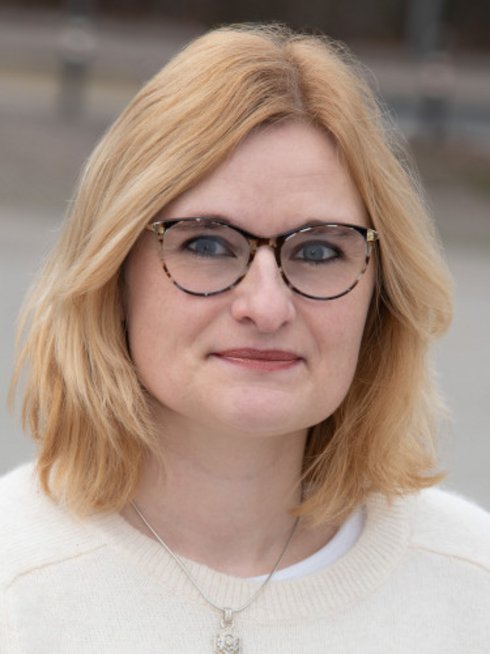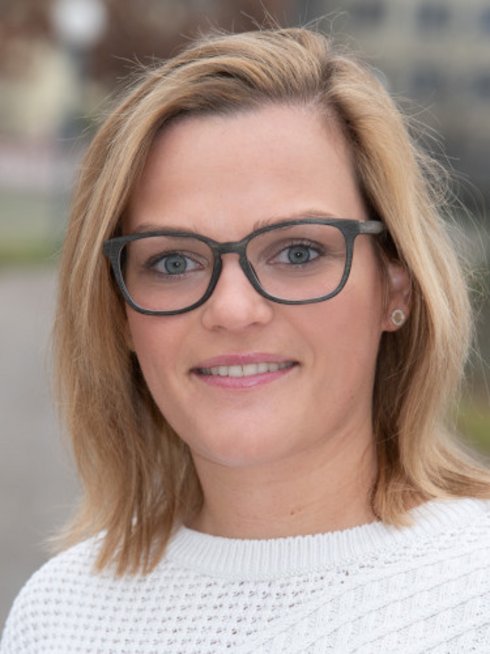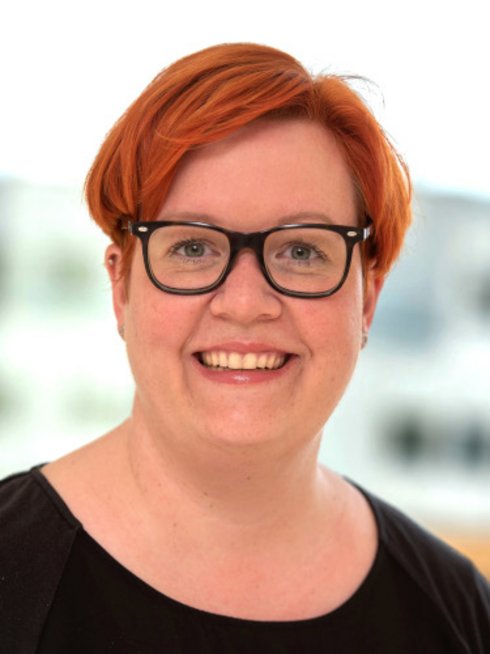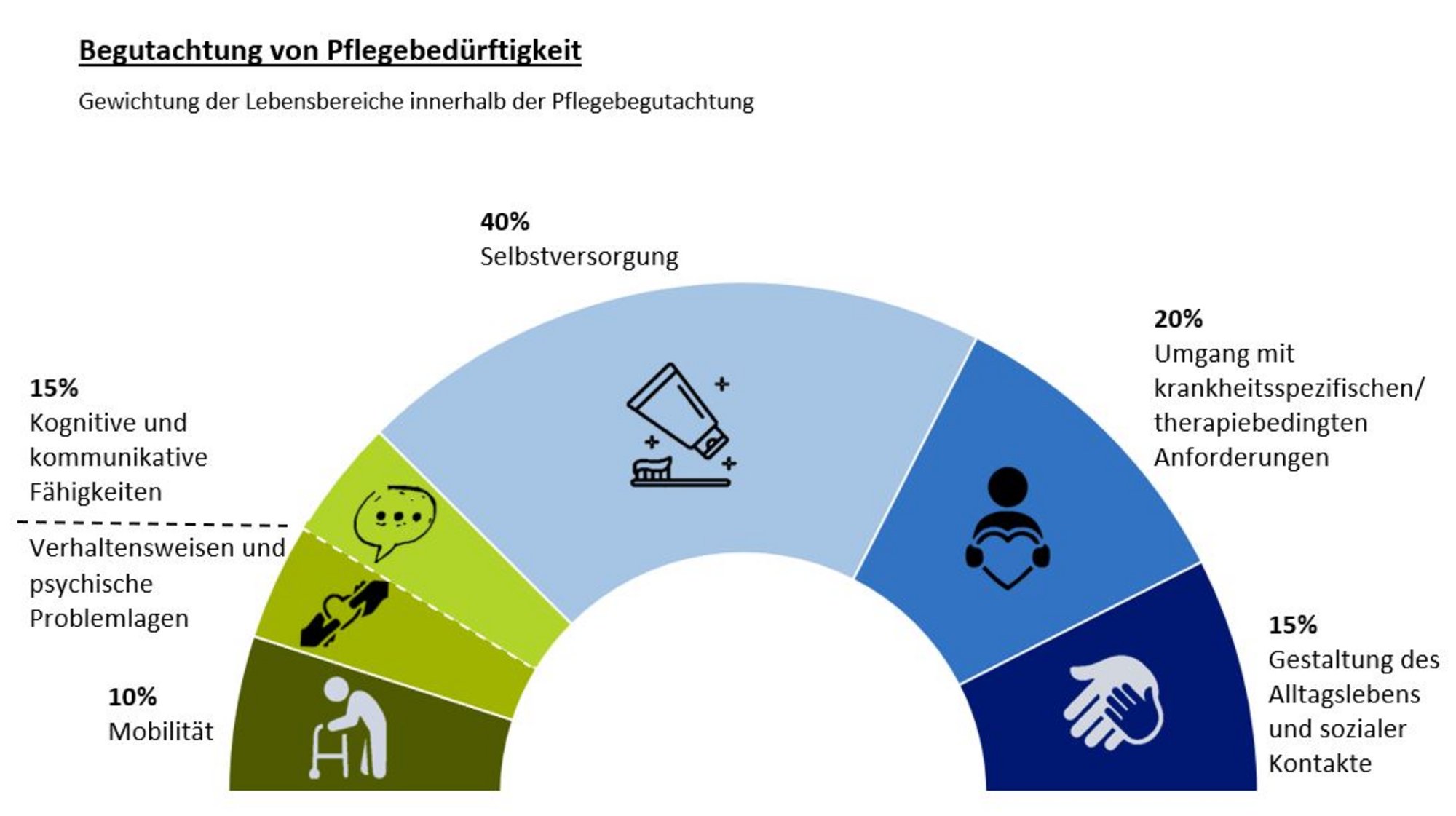Information and counseling on rehabilitation, laws for the severely disabled, other social insurance proceeds, occupational activities and financial aid prospects.
After cancer is diagnosed, questions often arise concerning consequences of the disease that go beyond the purely medical:
- How will this illness affect my work situation?
- How will I manage to cope with day-to-day life with cancer?
- Where can I find what help?
- What assistance is offered by my health insurance provider or other providers of social services?
Would you like a consultation?
Phone:
+49 6221 56-4477
E-mail:
sozialarbeit(at)nct-heidelberg.de
You can turn to our competent NCT social services contact persons for answers to all these questions. Our staff there is happy to advise you on all matters relating to social issues and social welfare law, medical rehabilitation, laws for the severely disabled, occupational and economic problems, or if you are worried about home care.
Furthermore, the social services staff supports you in contact with authorities and agencies, give practical advice for the filing of applications, and help you and your family in coping with the disease-related psychosocial burden.
In addition to comprehensive consultation, we also regularly run a group offer for oncologically diseased patients. You will be informed about the next date on this website and at the NCT.
After treatment for cancer, you usually have the option of undergoing medical rehabilitation.
This can take place as follow-up treatment immediately after surgery, chemotherapy or radiation treatment, or as oncological aftercare up to one year after completion of the initial treatment (surgery, radiation or chemotherapy).
In most cases, the responsible cost unit for an oncological treatment is the statutory pension insurance.
For patients who have not acquired any claims against a pension insurance (such as civil servants, self-employed persons), the respective benefit offices and/or private health insurance companies are responsible.
The staff of the Social Services Department at the NCT Heidelberg will clarify whether the costs will be covered in each individual case.
In the context of social legislation, a severely disabled person is one whose health is impaired with a degree of disability (GdB) of at least 50. You are entitled to a severely handicapped pass if your degree is 50 or above.
Most cancer illnesses carry with them a 50% disability classification (GdB: „Grad der Behinderung“) for the patient, regardless of the specific limitations and functional disabilities.
This means that this person is entitled to a severe disability I.D. and is granted special protection under German disability law.
Certain cancer illnesses can be classified with a lower GdB. In these cases, if you are employed, you may have your case reviewed and possibly classified equally under German disability law. This way you may be able to, for example in the case of termination by your employer, invoke protection under German disability law. You can find information on this subject at your local integration office or integration department.
The classification of severe disability is limited to the time of treatment, usually restricted to two to five years, and is reviewed again after this limit has expired.
The financial security of your livelihood during longterm illness largely depends on your income and insurance prior to the development of the illness.
If you were working, you are legally entitled to a continuation of pay for a period of six weeks.
If you are insured with a statutory health insurance company as an employee, be it voluntary or because it is obligatory, you are entitled to ‘sick pay’ (“Krankengeld”) after the intial six weeks of regular continued pay. This entitlement is valid for a period of three years for a total of 78 weeks, beginning with the first day of sick leave.
If you are registered as self-employed at a statutory health insurer or have private health insurance, your further financial security is dependent on your individual contract.
If the entitlement to “Krankengeld” has expired after a total of 78 weeks (called “Aussteuerung”), special circumstances might enable you to apply for further services at the Agentur für Arbeit (unemployment office).
Depending on the development of the illness and treatment, it should be examined early enough whether an application for reduced earning capacity pension (“Erwerbsminderungsrente”) may be applicable.
In cases of severe economic hardship, there is also the opportunity to receive financial aid from hardship funds of foundations, associations or charity organizations. These services are usually tied to certain income and wealth limits.
In principle, when prescription drugs or healthcare equipment are prescribed, you must be prepared to contribute 10%, at least 5 euros, but no more than 10 euros per prescription drug or healthcare equipment.
When treatments and remedies are prescribed (for example, physical therapy, lymphatic drainage) you must contribute 10 euros per prescription plus 10% of the treatment costs.
The contribution to patient transportation costs is also 10%, at least 5 € but no more than 10 €. If patient transportation costs are less than 5 €, you must pay the full cost.
Your personal contribution to inpatient treatment is 10 €/day for a maximum of 28 days per calendar year.
The copay for follow-up rehabilitation is also 10 € per day for a maximum of 14 days, if the responsible pension insurance is covering the costs of the treatment. If the statutory health insurer is covering the costs of the follow-up rehabilitation, then patients must pay a copay of 10 € per day for a maximum of 28 days. Previously paid copays in the hospital are factored into the final cost.
The copay for other rehabilitation treatments amounts to 10 € per day for a maximum of 42 days per calendar year.
The copay for rehabilitation treatments can be reduced or cancelled due to low income or receipt of specific "Entgeltersatzleistungen".
Every patient insured under the statutory health insurance scheme must contribute up to an individually determined financial limit. For persons over 18 years of age this financial limit is 2% of the annual gross (family) income. Depending on the number of family members, there are individual amounts of exemption which are subtracted from the gross income.
In the same way as an assessment of income takes the entire family income into account, all contributing payments by family members are added up for determining the individual financial burden. Those individuals residing in that household whose income was taken into account in calculating the individual financial limit are exempted from financial contributions.
For severe chronic illness the financial limit is 1% of this gross income. The existence of chronic illness must be verified by the attending physician. An illness is considered to be chronic if the patient has been under long-term treatment in regard to this illness for a year.
For cancer patients, this means that the financial limit is 2% for the first year after diagnosis and 1% after the first year.
Calculation example (2025):
Family of three with a sick father, mother (€520 job) and one child
| Gross income father | 40,000 € |
|---|---|
| Mother, minor employment | 6.240 € |
| Amount of exemption, wife | - 6.741 € |
| Amount of exemption, mutual child | - 9.600 € |
| Total | 29.899 € |
| 2% contribution in the first year | 597,98 € |
| 1% contribution in the second year | 298,99 € |
In principle, transportation costs for medical necessities are only covered in connection with inpatient treatment, i. e., hospitalization.
Transportation costs for outpatient treatment are not reimbursed.
Exceptions are so-called serial treatments, such as outpatient chemo- or radiation therapy, or other so-called antineoplastic tumor therapies (antibody, immunotherapy), which are outpatient procedures at doctors’ practices or semi-inpatient at hospitals.
Another requirement that must be met for the health insurers to cover transportation costs is that the treatment location must be the hospital or specialist medical practice nearest to the patient's home. As long as the patient has not been exempted from the additional personal contribution, he or she must contribute 10%, at least 5 euros and not more than 10 euros.
If additional outpatient appointments to the above-mentionend treatments have to be made (e.g. control or aftercare appointments), transportation costs will not be covered by statutory health insurances. Exception: If you suffer from proven impairment of mobility. Proof is made by possession of a "Schwerbehindertenausweis" with the marks "aG", "BI" or "H" or if a nursing degree of 4 or 5 has been determined. Outpatient transportation with medical transcription has to be approved by your health insurance before traveling.
If at least one child in the household that has not reached the age of 12 (some insurers: under 14) and no one else who could care for this child lives in the household, you are entitled to receive household help.
This help may be claimed for an indefinite period of time in case of hospitalization. In case of outpatient treatment, this benefit is granted by the health insurer for a limited time period.
If there is a child living in the household that has not reached the age of 12 by the beginning of the home care assistance or is disabled and in need of care, then the entitlement to assistance is extended to a maximum of 26 weeks. Insurers can potentially expand this coverage.
A home care organization, charity (for example, "Diakonie" or "Caritas"), your circle of friends and acquaintances, or your neighborhood can assist you in obtaining household help.
The details should be agreed upon with your health insurer in advance. An overview of the various services of different insurers for home care assistance can be found at the following web page: www.krankenkasseninfo.de
You can apply for home care assistance for the period of the oncological rehabilitation treatment, if a child under the age of 13 lives in the household. In this case, the costs are covered by the pension insurance.
A determination as to whether or to what extent your ability to continue working in your previous occupation is impaired as a result of cancer or its treatment depends on numerous factors.
Besides the physical condition, the extent of psychological strain caused by the illness as well as the individually variable ability to cope also play a role.
Both, the requirements profile and the physical and mental strain levels in the workplace are of critical importance.
Various processes and measures are used to determine the degree of performance impairment and maintain or restore the ability to work.
In stepwise occupational reintegration according to the so-called Hamburg model the weekly working hours are increased in specified intervals up to the former full weekly working time. The patient continues to be on sick leave during the process of reintegration and continues to receive sickness benefits.
Determination of the remaining occupational capabilities is also of importance during the medical rehabilitation process.
Additional possibilities range from further professional training to occupational retraining. In addition to social services, integration offices, service offices of the pension scheme providers, and rehabilitation advisors at job agencies can also be important contact persons in regard to occupational reintegration after a long period of illness.
Household help and domestic support
Home care assistance was until recently only available as a service of health insurers if a child under 12 (for some insurers under 14) lived in the household.
Since 2016, it has become possible to apply for home care assistance with your health insurance if you are unable to run your household due to severe illness or a worsening of the illness. This is especially the case after a period of hospitalization, an outpatient operation, or an hospital treatment, such as for example after chemotherapy. In these cases, the home care assistance is limited to four weeks.
Certain assistances are provided upon request. The application must include a statement by the attending physician.
Nursing services
If a growing need for nursing support arises in the course of a cancer illness, it should be checked whether the prerequisites for determining a degree of nursing care under the Nursing Care Insurance Act are met.
The degree of independence is the central criterion in determining the need for care. Physical, mental and psychological limitations are equally recorded and included in the assessment. For example, it is examined whether there is a specific need for help with self-care, i.e. personal hygiene, eating and drinking, or mobility in everyday life. It is also assessed whether there are restrictions on participation in social life.
There are a total of 5 degrees of care.
The benefits of long-term care insurance can be claimed as a care allowance, for example when care is provided by relatives at home, or as benefits in kind, when care is provided at home by an outpatient care service. Both benefits can also be combined.
If there is a gap in care at home due to the absence (vacation, illness) of the caregiver, this period can be bridged by a care substitute within the framework of so-called preventive care or by inpatient short-term care. The benefits of short-term and preventive care can be combined in different ways, depending on the needs of the individual case. Preventive care, however, can only be claimed if a care degree has already existed for at least 6 months.
If the person in need of care can no longer remain in his or her own home, the long-term care insurance will cover part of the costs of inpatient care in a nursing home.
If there is no need for nursing care as defined by the nursing care insurance, but treatment care (wound care, administration of medication) is required in the home environment, home nursing care can be prescribed by the attending physician. Within the scope of treatment care, temporary assistance with personal hygiene can also be prescribed if required.
Since 2015, family members providing care have, under certain circumstances, been entitled to be granted leave from work as well as nursing care aid. In cases of extended nursing care services, they may also be entitled to compensation, in the form of loans, for missing work. More information on this can be found under the category nursing care time/family care time or at the webpage www.wege-zur-pflege.de
For exact clarification of your individual support needs and your entitlement to nursing care services, please use our welfare services, as well as the services offered by your nursing care insurance or a nursing care location near you.
An overview of the services of the nursing care insurance (Status January 2025):
| Degree of care 1 | Degree of care 2 | Degree of care 3 | Degree of care 4 | Degree of care 5 | |
|---|---|---|---|---|---|
| Care allowance | 347 € | 599 € | 800 € | 990 € | |
| Non-cash benefit | 796 € | 1.497 € | 1.859 € | 2.299 € | |
| Full inpatient care | 131 € | 805 € | 1.319 € | 1.855 € | 2.096 € |
| Semi-inpatient care | 721 € | 1.357 € | 1.685 € | 2.085 € | |
| Short-term care | 1.854 € | 1.854 € | 1.854 € | 1.854 € | |
| Additional care assistance | 131 € | 131 € | 131 € | 131 € | 131 € |
Palliative medicine and specialized outpatient palliative care
The goal of palliative medicine is to enable the patient to live without pain, even if a severe illness cannot be cured. The outpatient palliative medical care structures have significantly improved in the last years.
Appropriate palliative medicine allows more and more patients to live at home in their familiar environment, largely without pain and with controlled symptoms, even in the terminal phase of their illness and life.
The Department of Pain Therapy and Palliative Care Medicine is a section of the Heidelberg University Hospital Department of Anesthesiology. Patients with chronic pain, including those with cancer pain, are treated here.
On an outpatient basis specialized outpatient palliative care services ("Spezialisierte ambulante Palliativversorgung, SAPV") supplements the existing services provided by contract physicians, hospitals, and nursing services and particularly focuses on the needs of severely ill patients. Insured persons suffering from an incurable, progressive illness that limits the patient's life to months and also requires complex inpatient or outpatient medical treatment are entitled to these SAPV services. The services are provided by palliative care teams who have concluded pertinent contracts with the health insurance providers, ensure 24-hour availability, and possess certain professional qualifications. "SAPV" must be prescribed by a physician.
The palliative care team SAPHIR is directly affiliated with Heidelberg University Hospital. You can find more information here: Heidelberg University Hospital: Palliative Care Team SAPHIR (uni-heidelberg.de)
Care period / family care period
A care period of up to six months may be claimed and is intended to enable employed family members to take leave from work, either partially or completely, for a limited period of time in order to look after and care for a family member in need of care. For the duration of the home care period the affected individual enjoys special protection against dismissal.
A right to claim a care period, however, only exists in companies with more than fifteen employees.
If a situation requiring nursing care occurs suddenly, an employed family member may take up to ten days off from work at short notice in order to organize nursing support and take care of necessary organizational matters. As of 2015, the right to claim nursing care support benefits for this short period of absence from work is guaranteed. Please contact the nursing care insurance fund of the person receiving care.
In order to support and care for a family member in the terminal phase of life, the possibility exists of being released from work, either completely or partially, for a period of up to three months and obtaining an interest-free loan from the German Federal Office for Family and Civil Society Tasks ("Bundesamt für Familie und zivilgesellschaftliche Aufgaben", BAFzA) for this time period. This option is available even if you do not personally provide care for your family member because he or she is cared for as an inpatient in a hospice or nursing home.
The family care period, a continuation of the care period, makes it possible for employees to reduce their working hours for a maximum of two years to as low as 15 hours per week so that they may care for a close relative. At the same time, this should not result in a complete loss of income. Half of the loss in earnings is compensated by an interest-free loan from the Federal Office for Family and Civil Society Tasks ("Bundesamt für Familie und zivilgesellschaftliche Aufgaben", BAFzA), which must then be repaid.
As of 2015, the right to claim the family care period is guaranteed in companies with more than 25 employees. In smaller companies the employer's consent is required. For detailed information, please visit the website of the Federal Ministry for Families, Seniors, Women, and Youth.
















